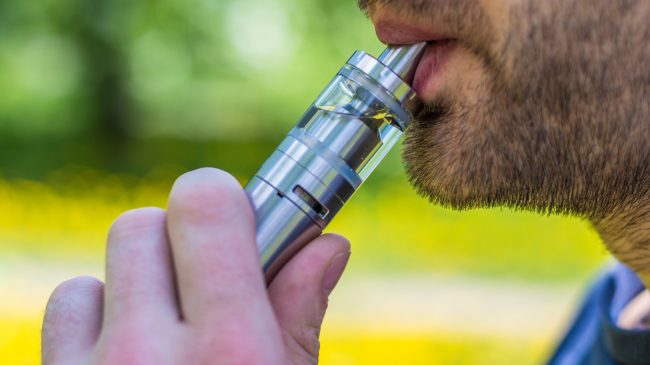Federal Updates
Food and Drug Administration commissioner Scott Gottlieb recently announced that the FDA will be launching “The Real Cost” campaign to educate teens about the dangers of using e-cigarettes and vapor products. Reason’s Brian Fojtik referenced this campaign and the misinformation about reduced risk products emanating from (or mandated by) government agencies and tobacco control groups in National Review.
The FDA docket on the modified risk tobacco product (MRTP) application from Philip Morris for its I-Quit-Ordinary-Smoking (IQOS) heat-not-burn tobacco product remains open for public comment. The Reason Foundation filed a public comment with FDA in support of the application. Reason Foundation’s Brian Fojtik and Guy Bentley commented on the MRTP application here.
State Updates
Kentucky’s Pegasus Institute published a paper by members of the University of Louisville’s James Graham Brown Cancer Center Doctors Brad Rodu (Professor of Medicine at the University of Louisville) and Nantaporn Plurphanswat (Research Economist at the University of Louisville) outlining a tax proposal for Kentucky that would incorporate tobacco harm reduction concepts by setting rates based on relative risks of different products (cigarettes, long leaf chewing tobacco, moist snuff and e-cigarettes).
The authors cite a number of economists and public health advocates such as David Sweanor, Dr. Kenneth Warner, Dr. Sally Satel and others who support and/or contributed to the proposal.
Science and Harm Reduction
A new report from R Street Institute Harm Reduction Policy Manager Carrie Wade and Associate Fellow Clive Bates explores the challenges facing the FDA’s controversial strategy of dramatically reducing nicotine levels in cigarettes. The report contends that such a nicotine reduction amounts to a prohibition of conventional cigarettes.
Wade and Bates argue a nicotine-reduction strategy should be evaluated against alternatives that lessen the appeal of smoking and provide low-risk alternatives. Promoting safer, alternative sources of nicotine would have the advantage of avoiding the harmful consequences that may stem from prohibiting a product with a customer base of 38 million.
“If the coercive reduced-nicotine strategy is to retain any credibility at all, it will be necessary to have alternative low-risk nicotine delivery systems readily available, so that these products can play a significant role in the behavioral response to the rule,” says Wade. “These low-risk alternatives should also be regulated proportionately and in ways that support diversity and innovation, rather than creating excessive regulatory barriers to entry that would establish a new tobacco industry oligopoly.”
Regulation
New York Governor Andrew Cuomo signed a bill October 23 that bans vaping anywhere smoking is banned, which includes workplaces, restaurants, and bars.
Reason Foundation Senior Fellow Brian Fojtik argues in a guest column for Vaping 360 that vapers should not be quick to attack smokeless tobacco or heated tobacco products. “If vapers want to be intellectually consistent and they truly are fighting to ensure that smokers are allowed access to nicotine products that can lengthen and improve quality of lives, they should answer ‘whatever vapor product, smokeless tobacco product, heat-not-burn or other non-combustible products that work best for you,’” writes Fojtik.
Taxation
On November 6, voters in the city of Aspen, Colorado will go to the polls to determine whether to establish a municipal tax on a pack of cigarettes of $3, with an increase 10 cents per year for ten years and an additional 40 percent tax on other tobacco products. If approved, the tax would go into effect on January 1, 2018.
Quotable Quotes
“The new breed of safer nicotine products are substitutes for combustible cigarettes. Policies which deter the use of a safer substitute effectively encourage the use of the less healthy alternative” – Christopher Snowdon, Director of Lifestyle Economics at the Institute of Economic Affairs.
Additional Resources
Comment to FDA on Modified Risk Tobacco Product Application
The Proposed Tobacco Product Standard for NNN Level in Smokeless Tobacco Should Be Withdrawn
The World Health Organization’s Opposition to Tobacco Harm Reduction: A Threat to Public Health?
The Vapor Revolution: How Bottom-Up Innovation Is Saving Lives


